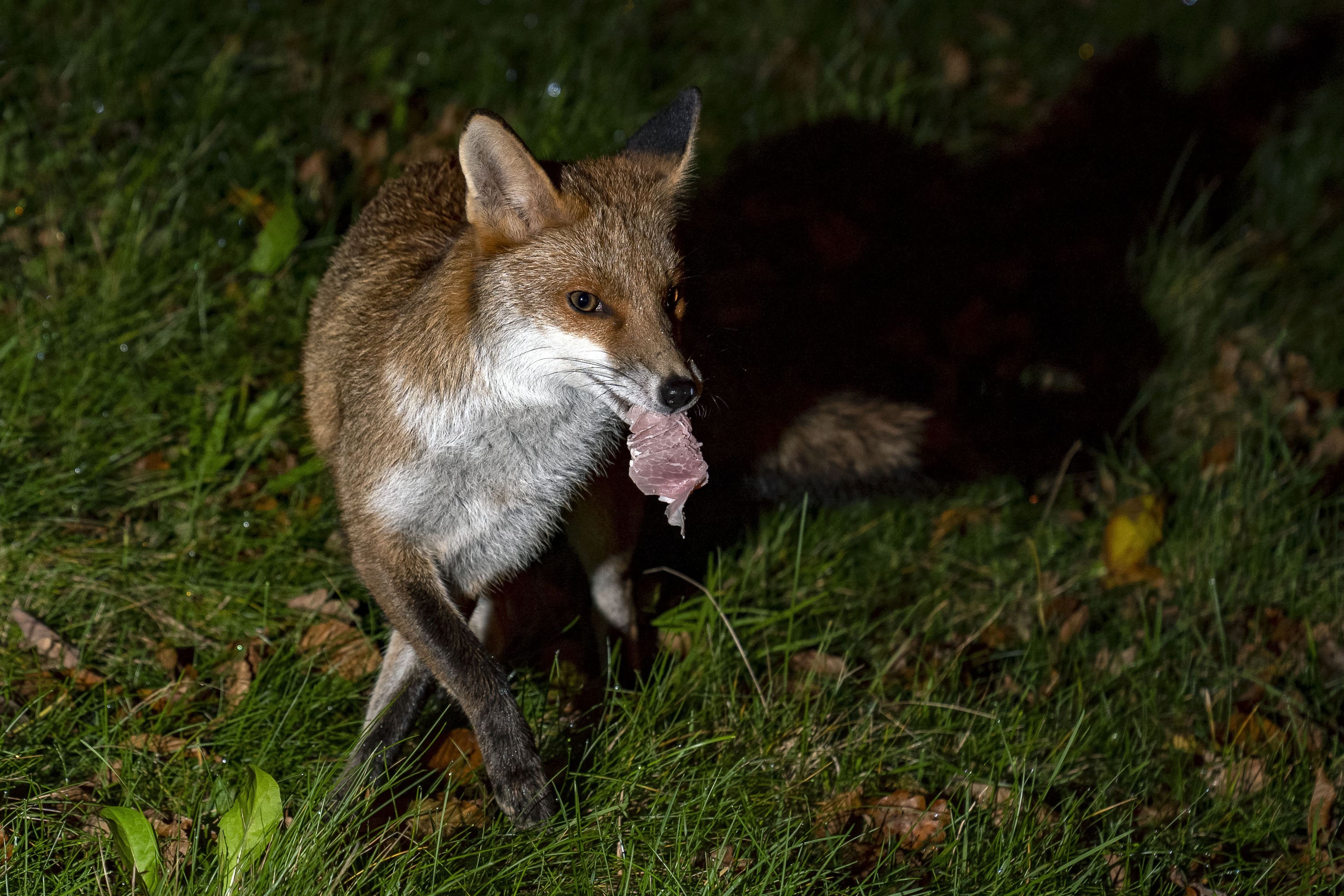Scrapping over scraps: British wildlife clash over leftover food
Video footage revealed more aggressive and submissive behaviour among animals than neutral interactions.

Your support helps us to tell the story
From reproductive rights to climate change to Big Tech, The Independent is on the ground when the story is developing. Whether it's investigating the financials of Elon Musk's pro-Trump PAC or producing our latest documentary, 'The A Word', which shines a light on the American women fighting for reproductive rights, we know how important it is to parse out the facts from the messaging.
At such a critical moment in US history, we need reporters on the ground. Your donation allows us to keep sending journalists to speak to both sides of the story.
The Independent is trusted by Americans across the entire political spectrum. And unlike many other quality news outlets, we choose not to lock Americans out of our reporting and analysis with paywalls. We believe quality journalism should be available to everyone, paid for by those who can afford it.
Your support makes all the difference.Badgers, hedgehogs, foxes and cats are fighting and having stand-offs over food left in British gardens, a study has revealed.
Experts at Nottingham Trent University and the University of Brighton analysed hundreds of videos – recorded by the public – to investigate interactions within and between different species.
They found that while food left by people in urban gardens – leftovers or commercially bought for this purpose – can provide benefits for wild animals, it can also draw competitors and predators close together.
The animals displayed a number of aggressive behaviours, including lunging, biting, striking out, and in one case a hedgehog was pushed into some water.
The consequences of interactions between garden mammals are numerous and can become aggressive between competing species
According to the study, badgers tended to dominate other species in the garden hierarchy while hedgehogs had more clashes than expected.
The footage revealed more aggressive and submissive behaviour among animals than neutral interactions.
From 316 instances where animals were spotted together, 175 ended in confrontation.
Researchers also found that creatures were more likely to confront different species than their own.
Cats and foxes appeared to take a particular disliking to one another, with more than three-quarters of interactions (77%) sparking some form of aggressive or defensive reaction – with cats dominating foxes.
Badgers were stronger than all other species in the contest for food – and to the research team’s surprise, hedgehogs outcompeted cats.
They suggest this could be because domestic cats are not as physically or behaviourally well adapted to defend themselves against hedgehog spines as wild predators.
Within the same species, hedgehogs were found to be the most combative – with more than half (55%) of interactions between them leading to some form of aggression.
This included a move dubbed the “barge and roll” by the researchers, whereby one hedgehog attacks another by running at it, causing the victim to roll up before being pushed away by the assailant.
Researchers suggest the purpose appeared to be to move a rival away from the food, such as to the edge of the garden.
In one instance an individual was pushed down a flight of concrete, and another into water.
Within species, badgers were the least competitive with one another, with just 7% of encounters resulting in a stand-off.
Professor Dawn Scott, lead researcher from Nottingham Trent University’s School of Animal, Rural and Environmental Sciences, said: “Food provided by people may help wild animals but may also attract animals together that could compete, injure, or predate each other.”
She added: “The consequences of interactions between garden mammals are numerous and can become aggressive between competing species.
“It could lead to injury or death and increased competition might also reduce access to resources for subordinate species or individuals.
“Our study is the first to quantify interactions between urban mammal communities in this way and to identify hierarchical relationships between wild and domestic mammals in urban gardens.
“We need to better understand interactions between urban animals and the potential effects of providing food in this way, to ensure any potential risks are minimised.”
Published in the journal Animals, the study also involved researchers from the University of Sussex and the Spanish National Research Council.